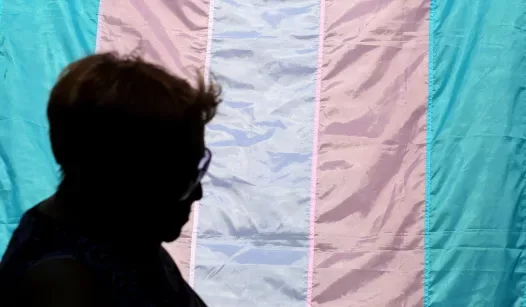The conversation surrounding transgender identity has become increasingly complex in recent years, with various perspectives influencing public discourse and policy. At the heart of this debate are two distinct groups: individuals who seek to live authentically in their chosen gender identity and those whose experiences may be intertwined with broader ideological beliefs about gender.
For many, the journey of transitioning is deeply personal and rooted in a genuine desire to align one’s external appearance with their internal identity. These individuals often advocate for acceptance and understanding, emphasizing the importance of personal autonomy and the right to self-identify. Their experiences are varied and nuanced, reflecting a spectrum of identities that exist beyond traditional binary classifications.
On the other hand, there are those who engage in discussions of gender that may be influenced by what some refer to as “trans ideology.” This term often describes a more politicized view of gender that extends beyond personal identity to encompass broader societal beliefs about gender fluidity, non-binary identities, and the implications of these views on laws and social norms. Critics of this ideology argue that it can sometimes overshadow the voices of individuals who simply want to live their lives authentically without the weight of ideological expectations.
This distinction is crucial in understanding the dynamics at play in contemporary discussions about gender. While many activists advocate for the rights of transgender individuals, there is a growing concern that the narrative may not always reflect the diverse experiences within the transgender community. Some individuals feel that their lived realities are being overlooked in favor of more radical interpretations of gender identity.
As the political landscape evolves, it is essential to navigate these discussions with care. Policies related to healthcare, education, and public accommodations are increasingly influenced by the broader ideological framework surrounding gender. This has led to significant debates about the rights of transgender individuals, particularly in areas such as access to gender-affirming healthcare, participation in sports, and the inclusion of transgender topics in school curricula.
Understanding the difference between personal identity and ideological beliefs can foster more productive conversations. It allows for a recognition that while the desire for acceptance and rights is universal, the paths to achieving these goals can differ significantly. Engaging with these complexities is vital for creating a more inclusive society that respects individual choices while also considering the implications of broader ideological movements.
In conclusion, the discourse surrounding transgender identity and trans ideology is multifaceted. It is essential to approach these conversations with empathy and an open mind, recognizing the diversity of experiences within the community. By doing so, we can work towards a more nuanced understanding that respects individual identities while also critically examining the ideologies that shape our societal views on gender.
